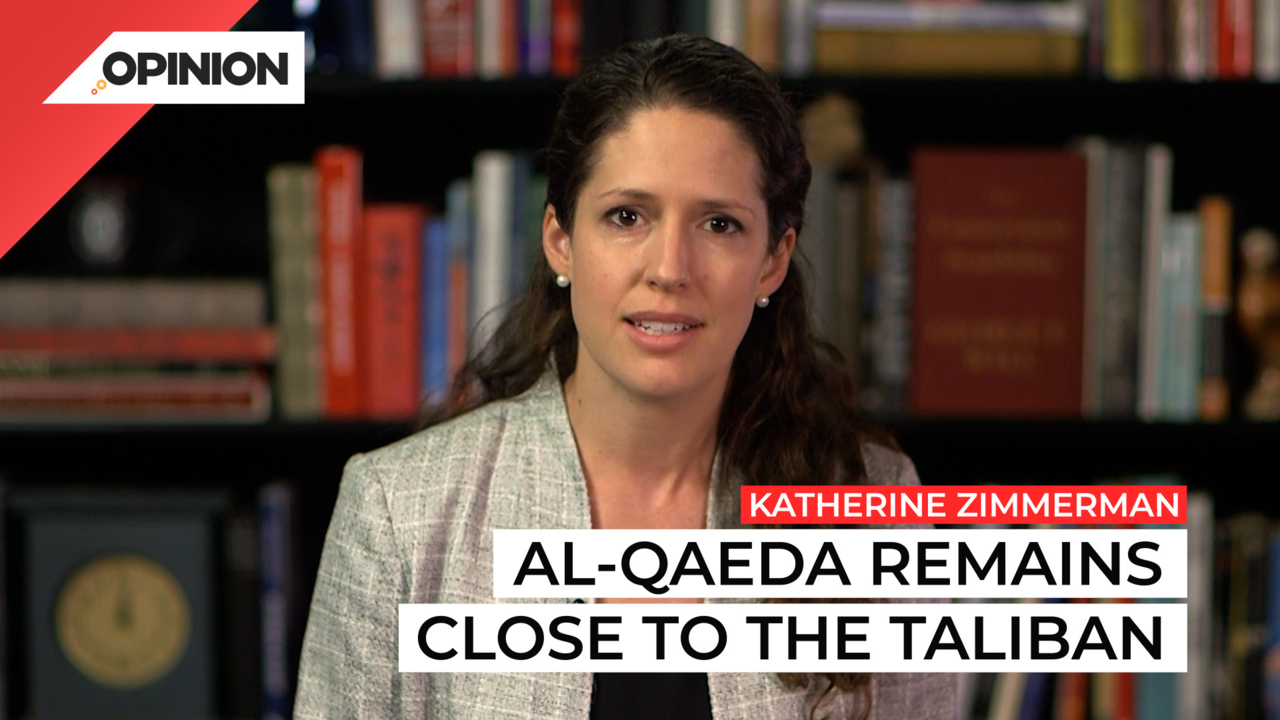
Commentary
-
Our commentary partners will help you reach your own conclusions on complex topics.
Afghans are marking one year under Taliban rule. One year since the calamitous US withdrawal led to chaos in the capital, Kabul, and the return of the Taliban government. President Biden made a promise to the American people and to those who served as our allies in Afghanistan. His administration would leave no one behind and a so-called over-the-horizon counterterrorism approach would keep Afghanistan from becoming a terrorist sanctuary again.
More than 67 thousand Afghans who worked side-by-side with Americans remain trapped despite promises and reassurances that we would not abandon them. The Special Immigrant Visa program, enacted in 2009 by Congress to bring America’s Afghan allies to the United States, has been plagued by delays and backlogs. The process slowed under the Trump administration due to additional vetting requirements. The Covid-19 pandemic introduced new roadblocks to accelerating visa processing, though the State Department displayed little creativity in devising workarounds once the world moved beyond the initial pandemic disruption.
In summer 2021, the State Department announced a second pathway for Afghans—Priority 2—to enable Afghan partners who did not meet strict SIV requirements to leave. Those eligible for Priority 2 visas were primarily contractors for US government-funded programs or worked for US organizations, especially US media companies and NGOs, rather than being direct US-government employees.
Even after the fall of Kabul, Afghans continued to experience visa delays while the Taliban hunted down US collaborators. Only this summer did the US government ease some of the requirements that blocked Afghans from receiving their visas. Previously, anyone who had paid the Taliban regime to pass through a security checkpoint or for a public service, like getting a passport to travel, was deemed ineligible for a visa on the grounds of support to a terrorist organization. The same applied to those who had worked as low-level civil servants under the Taliban regime from 1996 through 2001 and after August 2021. The Department of Homeland Security announced exemptions in June this year to prevent the automatic disqualification of those Afghans who had had to interact with the Taliban in their daily life.
In July, the State Department announced that it was further streamlining the SIV program by eliminating a lengthy form that previously had to be filed separately. Eliminating the extra form should save about a month in visa processing time, according to US officials. But for some applicants, the process has already taken years. Afghans pursuing other ways to enter the United States also face bureaucratic red tape. As of March, over 44 thousand Afghans applied for humanitarian parole status. Only 200 received it and over 2000 were denied it.
Accelerating the adjudication of our Afghan allies’ cases is a step forward but more needs to be done. Too stringent application of US laws regarding support for terrorism, a complicated, cumbersome visa application, and slow processing has stranded those who helped US soldiers and diplomats.
Meanwhile, the terrorism threat from Afghanistan is trending the wrong way. Counterterrorism pressure has lifted. The Islamic State has strengthened and expanded its attack range to neighboring Pakistan, Tajikistan, and Uzbekistan. It leads an insurgency against the Taliban and actively recruits from marginalized Afghan groups. Al Qaeda remains close to the Taliban and enjoys relaxed pressure to communicate more freely with followers and begin to train new recruits. The Taliban’s minimal restrictions on al Qaeda are expected to loosen further over time.
The “over-the-horizon” approach briefs well—the United States has exquisite targeting capabilities—but remains hollow upon closer examination.
Everywhere else in the world where the United States is conducting counterterrorism operations, the US military works directly with partners on the ground and can use nearby drone bases to sustain pressure on al Qaeda and Islamic State networks. In and around Taliban-controlled Afghanistan, America’s lack of local support and infrastructure forestalls effective counterterrorism.
Any counterterrorism operation requires good intelligence. Discussions of the current US intelligence picture have rightfully remained behind closed doors. But the local intelligence networks that illuminated threats for the United States have disintegrated, and satellite pictures and technology can only go so far. Potential counterterrorism partners in neighboring states may have parts of the picture, but those relationships—if they exist—are still forming.
Counterterrorism operations also require access. Afghanistan’s distance from US military bases is a problem. Geopolitical realities—namely strong Russian influence—almost certainly preclude basing in Central Asian states. Currently, the United States relies on Pakistan to allow overflight of drones flown from the Gulf.
US officials are actively courting partners in the region, but any such relationship will take time to develop, time the terrorists will also make good use of.
We should commemorate the one-year anniversary of the US withdrawal from Afghanistan by remembering the sacrifices of Americans, Afghans, and other allies, but also by ensuring that their sacrifice has not been in vain. One such way is for the President to deliver on the promise he made a year ago. Secure protection for our Afghan partners and keep Americans safe.
-
US should help Yemen fight Houthis
Recent Houthi attacks on U.S. Navy vessels and U.S. counter-strikes against Houthi targets in Yemen have triggered a foreign policy debate on how the United States should proceed and on whether a larger U.S.-Houthi conflict might be imminent. Houthi leaders say that their aim is to impede Israeli trade and shipping, even though many of…
-
US must respond to threat from Iran-backed Houthis
Last month, the commander of Iran’s Islamic Revolutionary Guards Corps Quds Force told the head of Hamas’ military wing that Iran will do “whatever it takes” to support them in its war with Israel. Meanwhile, the Iranian-backed Houthi rebels in Yemen intensified attacks on commercial ships in the Red Sea, prompting U.S. warships to shoot…
-
US, Israeli counterterrorism policy must adjust after Hamas attack
Revered Israeli and U.S. intelligence agencies failed to detect the signs of an imminent Hamas attack on Israeli villages near the Gaza Strip. The surprise attack was planned within Hamas’s military wing and highlights both Israel’s intelligence blind spots as well as Hamas’s use of “old-school techniques” like in-person communication. Straight Arrow News contributor Katherine…
-
US must sustain pressure against al-Qaeda
The United States and its allies have severely reduced the capacity for al-Qaeda, the terrorist group behind the 9/11 attacks, to organize or carry out any large-scale terrorist attacks against the U.S. homeland. Recent U.S. intelligence assessments suggest al-Qaeda is weaker than ever in Afghanistan, while experts and international observers continue to warn that al-Qaeda is…
-
African coups demand US policy changes
A string of recent military coups toppling governments in the African Sahel, from Guinea to Sudan, poses new risks and challenges to the United States. France, formerly a key ally in African security affairs, has also massively reduced its forces on the continent, at times being chased out by pro-Moscow forces. Straight Arrow News contributor…
Latest Opinions
-
 U.S. Department of Defense
U.S. Department of Defense
Congress still trying to figure out how to reduce wasteful military spending
-
 DVIDS
DVIDS
US Navy, Air Force making waves with new weapons at RIMPAC
-
 Getty Images
Getty Images
Israeli PM Netanyahu meets with Trump at Mar-a-Lago
-
 Getty Images
Getty Images
Growing US nuclear power resurgence reaches the nation’s heartland
-
 Getty Images
Getty Images
Beer from the sun, other solar thermal projects get government funding
Popular Opinions
-
In addition to the facts, we believe it’s vital to hear perspectives from all sides of the political spectrum.


